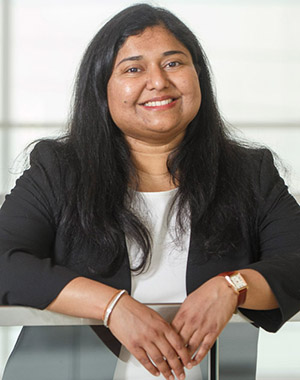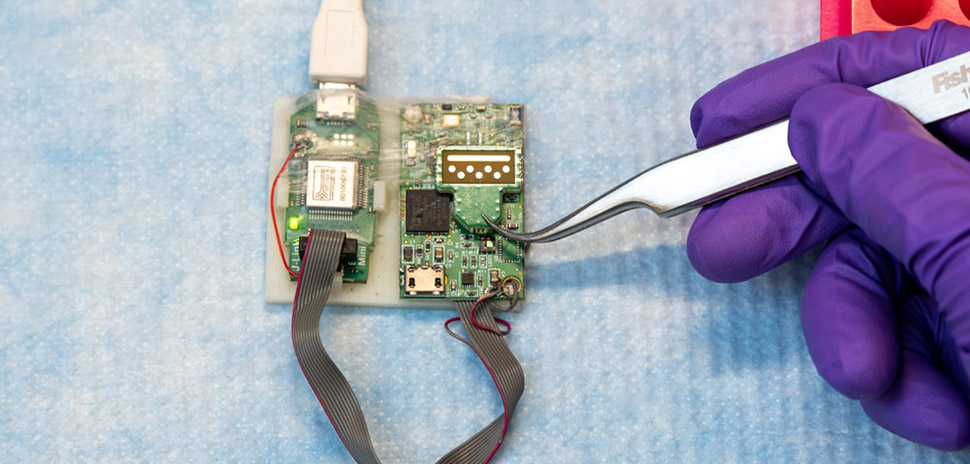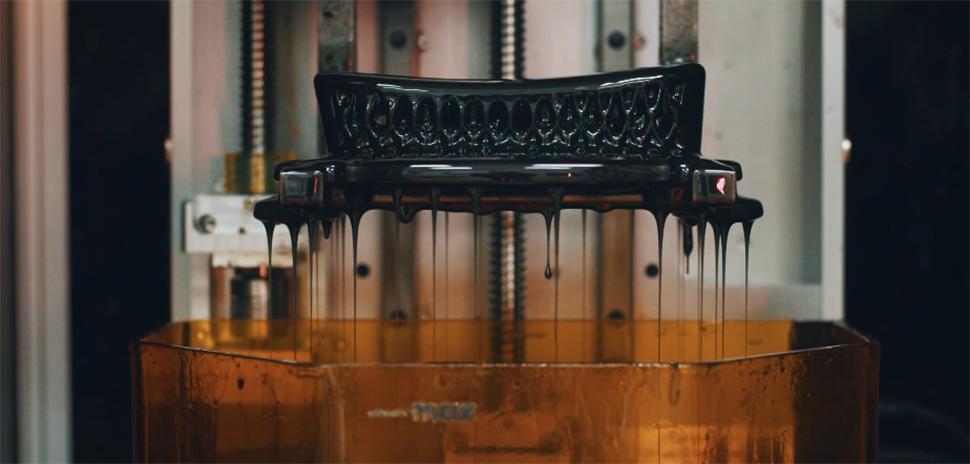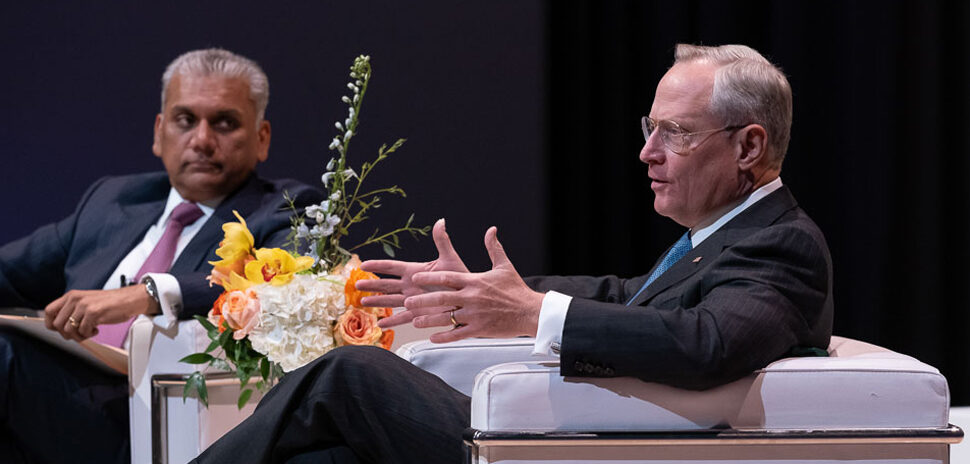Bioengineering researchers at UT Dallas are making advances that can improve and save lives. The university is culminating a year-long celebration of the Department of Bioengineering’s 10th anniversary with a symposium.
Since its beginning a decade ago, the department has educated future bioengineers and performed groundbreaking research that aims to improve human health.

Dr. Shalini Prasad [Photo:UTD]
Ranging from the development of sensor technology to detect sepsis to nerve stimulation to reverse brain disfunction, the program “has delivered novel innovations in med tech and digital health,” according to Dr. Shalini Prasad, a professor who heads bioengineering at UT Dallas.
It’s a field that’s growing faster than average, according to the university. Annual salaries average $91,410 in biomedical engineering, it says, citing Department of Labor statistics
Prasad sees the UT Dallas program bringing “together innovative ideas with entrepreneurial spirit” among the student body and the faculty. The result? A bioengineering impact that’s “palpable in North Texas and beyond,” she says.
On April 8 and 9, UT Dallas will mark a decade of what the professor calls “meteoric growth” for its bioengineering program.
The free virtual event, the 10th Anniversary Symposium, on April 8 and 9 will feature discussions with industry leaders, students, and academics on the latest research advancements throughout the biomedical engineering field and at UT Dallas. Speakers include James B. Milliken, chancellor of the UT System, and Dr. Daniel K. Podolsky, president of UT Southwestern and holder of the Philip O’Bryan Montgomery, Jr., M.D. Distinguished Presidential Chair in Academic Administration and the Doris and Bryan Wildenthal Distinguished Chair in Medical Science.
UT Dallas launched its bioengineering program in 2010. At the time, it “hoped to enroll 300 students by the 2020 academic year.” But, UT Dallas says, the program surpassed that goal in about three years. It’s now seen the current enrollment of bachelor’s, master’s and doctoral students climb to 719 students.
“The student body is Texas-sized,” Prasad said in a statement.
The school has earned accolades for its undergrad bioengineering program that include becoming the third largest in the U.S. based on enrollment, per the American Society for Engineering Education. And according to the U.S. News & World Report, the graduate program ranks third among biomedical engineering programs at Texas public universities.
The program, which has research expenditures that topped $17 million in 2019, allows faculty and students to collaborate with researchers at UT Southwestern Medical Center, the school says.
Key advancements
Examples of the department’s research work and inventions include:
- vagus nerve stimulation to reverse brain dysfunction caused by damage to a nerve outside the brain and spinal cord.
- applied sensor technology to detect sepsis.
- fabricated corneal tissue to allow deeper study of the eye’s healing process.
(These are thanks to funding from National Institutes of Health, the National Science Foundation, and the Cancer Prevention and Research Institute of Texas.) -
a drainage device called Glaucomedi to treat glaucoma was developed by students Hebah Abdallah, now a biomedical engineering graduate student, and Jacob Awkal, a biomedical engineering senior.
(The two students working with Dr. Karanjit Kooner, associate professor of ophthalmology at UT Southwestern, took first place in the Student Pitch at the Institute for Innovation and Entrepreneurship’s Big Idea Competition at UT Dallas last November.)
The establishment of the Texas Biomedical Device Center
In 2012, the university created the Texas Biomedical Device Center, with support from Texas Instrument and a private donor. The center was developed as a place where researchers from bioengineering, UT Dallas’ School of Behavioral and Brain Sciences and School of Natural Sciences and Mathematics, and UT Southwestern could develop technologies to prevent injuries, detect impairments and restore quality of life lost due to neurological injuries and disease.
![]()
Get on the list.
Dallas Innovates, every day.
Sign up to keep your eye on what’s new and next in Dallas-Fort Worth, every day.


































































